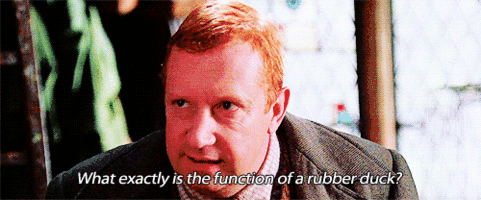Wizarding WReform: Magical and Muggle Cooperation
One of the most troubling aspects of the wizarding world is its lack of relationship with the Muggle community. Wizards leave those without magic to fend for themselves, refrain from involvement in Muggle affairs, and often think Muggles are lesser, whether they’re coming from a place of pity or disgust. Although the reasoning behind the International Statute of Secrecy is a well-founded fear of persecution, there are ways for wizards and Muggles to interact that could benefit both while still maintaining a degree of privacy. Perhaps neither group is ready for full integration, but collaboration and diplomacy could still be possible at a certain level.
When Harry first asks what the Ministry of Magic does, Hagrid’s response is that “their main job is to keep it from the Muggles that there’s still witches an’ wizards up an’ down the country” (SS 65). That sounds like an awfully large waste of time and resources focused solely on secrecy that could be better spent on other matters. The main reason for this, according to Hagrid, is not safety but that “everyone’d be wantin’ magic solutions to their problems” (SS 65). Is that so terrible? Wizards have plenty of problems despite magic, so why not make life a little easier for others?
One possibility would be for wizards to simply choose to secretly aid Muggles. In the aftermath of a natural disaster, would anyone really mind or investigate if one group of volunteers were particularly efficient in their clean-up and rescue efforts? If seriously ill hospital patients began showing improvement, would their families or doctors be upset? To minimize the risk of suspicion or exposure, wizards could coordinate secretly with Muggles who have high security clearance, like the British Prime Minister, who is already aware of their existence and some of their activities. If certain agencies are thought to know about or prepare for the arrival of extraterrestrial beings, surely some could liaise with the magical people who have long lived among them. If Muggles can handle aliens, they can handle humans with wands.
Collaboration with the Muggle PM in the first chapter of Harry Potter and the Half-Blood Prince is limited, and he is put in a position in which he cannot consult with anyone else. Rather than just one person, certain committees, agencies, or organizations could be let in on the secret. Select high-ranking members of the United Nations and World Health Organization could ensure that magical aid is given where needed without too many questions asked. Wizards could be involved in the development of medical treatments or sustainable energy or help alleviate poverty, hunger, or the effects of climate change while the general population is none the wiser.
Wizards could also be encouraged to help Muggles on a smaller scale. Kingsley Shacklebolt urges Potterwatch listeners to cast protective charms on Muggle residences in their area. Individual wizards could clear snow from their neighbors’ sidewalks, help with home repairs, and do their part – more efficiently than the average Muggle – to keep the neighborhood safe and clean.
In addition to sharing their resources with Muggles, revising the International Statute of Secrecy could have advantages for the magical community as well. Some Muggle technology, such as radios and trains, is already used in the wizarding world. Wizards might find other devices useful too. Magical communication is quite slow, relying primarily on owl post rather than any kind of instant method like phones. Correspondence via Floo powder, Patronuses, or two-way mirrors does not seem common. Even if Muggle technology itself would go haywire around magic, it could serve as inspiration for wizards to devise magical methods that allow face-to-face or immediate text communication.
Mutual understanding is the key to reducing prejudice on both sides. The wizards who look down most on Muggles tend to be those who know the least about them. If more wizards knew of the ingenious inventions Muggles have created to manage without magic, they might be quite impressed, just like that champion of Muggles, Arthur Weasley. Likewise, if Muggles saw improvements in their society and learned that wizards were responsible, they might gain an appreciation for them as benevolent neighbors and helpers rather than a powerful group to be feared.
By taking steps toward communication and cooperation, wizards may eventually be able to come out of hiding entirely. While the magical community seems rather slow to advance, still relying on quills and ink in the late 20th century, the Muggle world has made enormous strides since wizards walked publicly among them. They might be less ignorant, less biased, and more open to the idea of their magical fellows. The only way to find out if there can be progress is to try.



